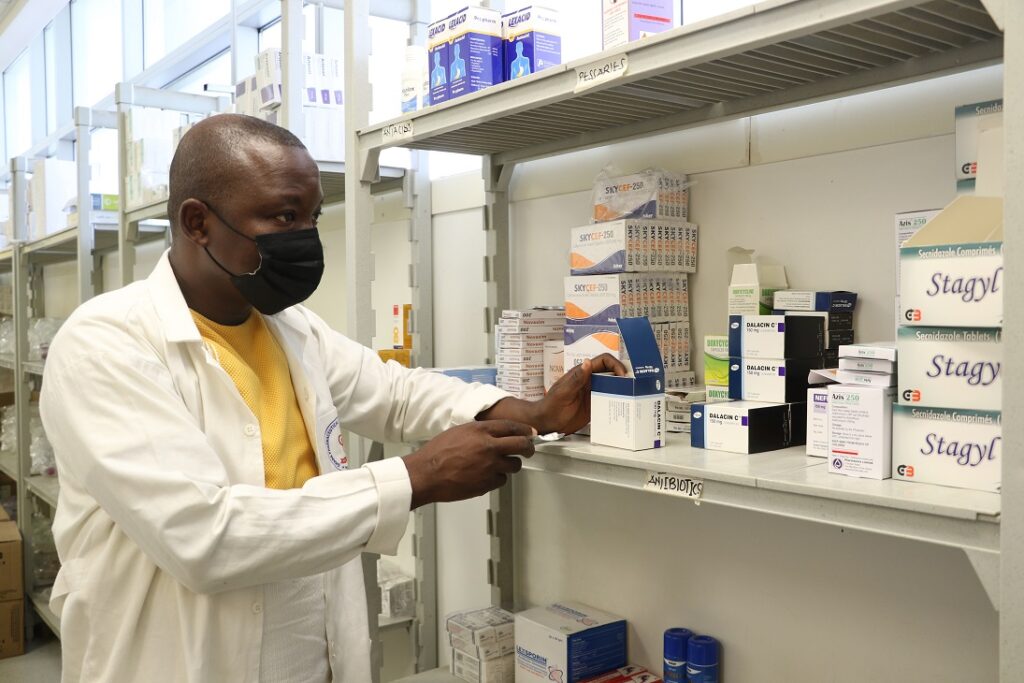The looming crisis in Ghana’s healthcare system has taken center stage as the Government and Hospital Pharmacists Association (GHOSPA), a key practice group within the Pharmaceutical Society of Ghana (PSGH), has issued a forceful call to action.
At the heart of the matter is the delay in posting 599 pharmacist house officers, who remain sidelined due to a lack of financial clearance from the Ministry of Finance.
The association emphasized that the situation is becoming dire, noting that by the end of this month, 333 pharmacist house officers currently serving in various hospitals will have completed their national service.
In its official statement, GHOSPA noted that this leaves a critical gap in pharmaceutical care delivery if immediate replacements are not deployed.
According to GHOSPA, this transition is not merely routine; it is pivotal to sustaining healthcare operations across the country.
“This is at the back of a worrying development where there has not been permanent recruitment of pharmacists for the past five years into the Ghana Health Service and its allied Agencies.”
Government and Hospital Pharmacists Association (GHOSPA)
The group warned that unless swift action is taken, the quality and safety of pharmaceutical services within Ghana’s hospitals will deteriorate rapidly.
Meanwhile, Pharmacist house officers serve an indispensable function within Ghana’s healthcare system.
Their responsibilities include patient counseling, medication management, clinical pharmacy services, and ensuring the safe and effective use of medicines. The absence of this cadre, GHOSPA explained, threatens not only hospital efficiency but also patient safety.
Accordingly, the group highlighted that the simultaneous exit of 333 pharmacist house officers without immediate replacements would have serious consequences.

Remaining pharmacists, who are already working under considerable pressure, would become further overwhelmed, increasing the likelihood of medication errors and treatment delays.
In addition, essential 24-hour clinical pharmaceutical services—such as chronic disease management, emergency care, and antimicrobial stewardship—would face significant disruptions.
These setbacks would place further strain on the already overburdened healthcare system, worsening service delivery and compromising patient care across the country.
Staff Shortage of Pharmacists to Compromise Patient Safety
Furthermore, GHOSPA underscored that the 599 pharmacist house officers currently awaiting deployment have completed all required training and are ready to assume critical responsibilities.
The only obstacle is the Ministry of Finance’s delay in granting the necessary financial clearance.
“GHOSPA wishes to remind the government that pharmacists are not just dispensers of medicines but critical healthcare providers whose absence will cripple hospital operations. We cannot afford bureaucratic delays when lives are at stake.”
Government and Hospital Pharmacists Association (GHOSPA)

Accordingly, GHOSPA transitioned from a formal appeal to a firm demand, calling on the Ministry of Finance to take immediate action.
The association urged the government to expedite the financial clearance for the 599 pharmacist house officers to prevent the looming collapse of pharmaceutical care across the country.
GHOSPA also emphasized the importance of ensuring uninterrupted staffing by effectively coordinating the transition between outgoing and incoming house officers.
Additionally, it called for proactive collaboration between the Ministry of Finance, the Ministry of Health, the Pharmacy Council, and GHOSPA itself to resolve the current impasse and implement long-term solutions to avoid future delays in postings.
They warned that the “Consequences of Inaction Are Dire”. In addition to patient harm from medication errors, the prolonged delay will heighten burnout among overburdened pharmacists.
This, they argued, will further compromise public health outcomes and diminish trust in the national healthcare system.
“By granting clearance, the government will safeguard the continuity of high-quality pharmaceutical services and affirm its commitment to the health and well-being of all Ghanaian citizens.”
Government and Hospital Pharmacists Association (GHOSPA)
GHOSPA concluded its public appeal with a wider call to all stakeholders. It urged media houses, civil society organizations, and the Ghanaian public at large to join in demanding immediate action to avert what it described as a “looming pharmaceutical care crisis.”

The group insisted that the government’s commitment to universal healthcare and safe patient care would be measured by how swiftly and effectively it responded to this challenge.
Pharmacist house officers, they emphasized, are not supplementary staff—they are foundational to the country’s health infrastructure.
As the deadline for the current officers’ exit draws near, all eyes now turn to the Ministry of Finance.
With the lives of patients, the safety of treatments, and the future of Ghana’s pharmaceutical services hanging in the balance, the question remains: will action be taken before the system begins to unravel?
READ ALSO: Victoria Michaels Raises Concerns on Exploitation in Ghana’s Modeling Industry



















